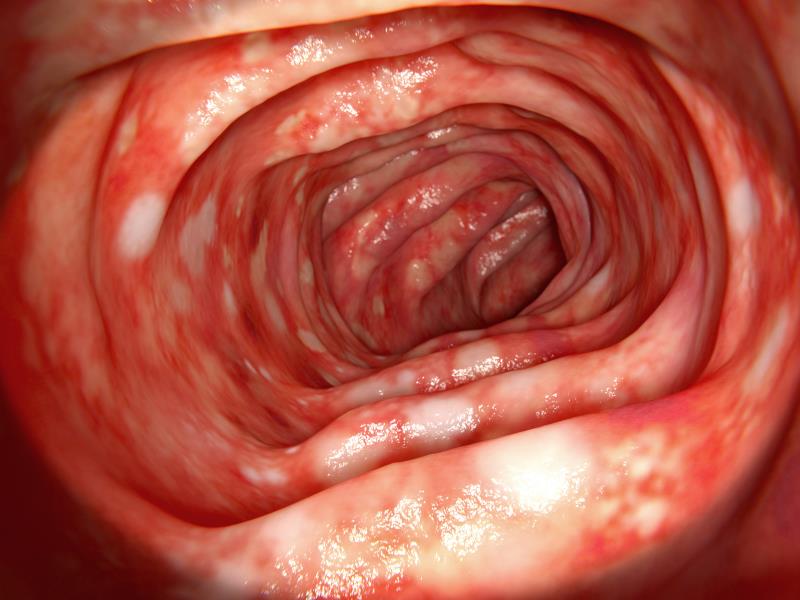
Tofacitinib shows promise in a highly refractory population of ulcerative colitis (UC) patients, inducing clinical remission and preventing the need for colectomy, a recent study has found.
Researchers performed a national cohort study on 38 patients (median age, 41 years; 39 percent female) with active UC refractory to anti-tumour necrosis factor treatment and vedolizumab. All participants received tofacitinib and study outcomes were survival without colectomy, survival without treatment discontinuation, and steroid-free remission at weeks 14, 24 and 48.
Thirty-two percent of the participants showed steroid-free clinical remission by week 14, which remained stable until week 24 and grew slightly to 34.2 percent by week 48. Forty-five percent were positive for clinical response to treatment at week 14, dipping to 37 percent at weeks 24 and 48. Nine patients relapsed during the follow-up period, with a rate of 24 percent.
Sixteen patients had to discontinue treatment over the study duration, of whom seven needed colectomy for worsening UC. Most discontinuations occurred within the first 24 weeks. Other reasons for discontinuation included nonresponse and severe adverse events. No deaths were reported and there were no drug restarts.
The rate of survival without colectomy at week 24 was 77.1 percent, dropping to 70 percent by week 48 and by end of the follow-up period. The corresponding survival rates without tofacitinib discontinuation were 70.2 percent, 58.8 percent and 58.8 percent.
“[T]ofacitinib represents a treatment of choice for UC patients who are refractory to conventional therapies and further studies are expected to determine the best position of tofacitinib in the therapeutic strategy of UC,” said researchers.